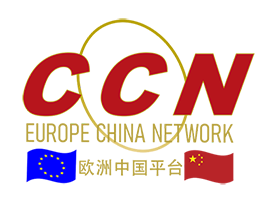CHINA’s education
Survey of China’s education
The Chinese government has placed priority on developing education, putting forward the strategy of revitalizing the country through science and education, making constant efforts to deepen the reform of educational system, and implementing the nine-year compulsory education. Governments at all levels are increasing investment in education and encourage people to run education through different channels and in different forms.
“Education must meet the needs of the modernization drive, the world and the future”, put forward by Deng Xiaoping, is the direction of China’s educational development, and also the guiding principle to promote education reform and construction.
School education Structure
School education of the People’s Republic of China includes preschool, primary school, secondary school, high school, university and college, as well as graduate school education. The following is school age and fixed school terms at different levels;
Kindergartens take children above three years old with a term of three school years;
Primary schools and secondary schools take six school years and three school years, five school years and four school years, or just nine-year-through schooling. Most areas practice the six-year and three-year school-year terms. Therefore, primary school term is six or five years, and secondary school term is three or four years; school age for primary schools is six or seven years old, and 12or13for secondary schools ;
School age for common high schools is15 or 16, with a term of three school years, Secondary professional schools are divided into two types: school age for the first type that takes junior middle school graduates is 15 or 16, usually with a term of four school years but with some exceptions of three-year schooling; school age for the second type that takes high school graduates is no more than 22, with a two-year term of schooling; secondary vocational schools usually provide three or four years of schooling; technical schools provide three years of schooling; school age for vocational high schools is15 or 16, with a term of two or three school Years, or even four years in some places;
The schooling time of full-time universities is four or five school years (seven or eight years in some medical universities), schooling term of professional schools of higher education and vocational technical schools of higher education is two or three years;
Graduate education is divided into Master degree and Ph.D degree. The school age for Master degree students than 40, with a tem of two or three school years; school age for Ph.D Students is no more than 45,usually with three years of schooling;
The schooling term of various adult schools follows the practice of similar full-time schools. Adult secondary schools usually have the same schooling term as full-time schools of same nature; part-time or spare-time adult schools have one year more schooling term than full-time schools of same nature. The schooling time of undergraduates in adult schools of higher learning is four or five years, while education at professional schools of high education takes many forms, usually with a term of two to four school years.
Law of the People’s Republic of China on Compulsory Education stipulates that the state should implement the nine-year compulsory education system, namely, education at primary and secondary stages is compulsory. “Children of six years old, despite gender, nationality, and race, must go to school to receive free education. And areas where conditions are yet to be ready could postpone the school age to seven years old, which the state, society and families must guarantee.”
Higher Education in China
The institutions to implement higher education include universities, colleges, and professional schools of higher education. Schools of higher learning undertake teaching, scientific research, and social services.
Chinese universities are divided into several categories: some directly under the Ministry of Education, others run by provincial, autonomous regional, and municipal governments, still others run by local center cities, as well as by communities. Chinese universities and independent colleges are equal institutions of higher learning.
China has established a very strict enrollment examination system to guarantee the quality of enrolled university students. Only those students who have received high school graduation certificates cm go to college after passing the national entrance exam.
China’s full-time institutions of higher learning have two semesters in a school year (three semesters in some colleges). The first semester begins in early September, while the second in mid-February. One semester usually lasts about 2Oweeks,with students having fives days of study every week. Besides winter and summer vacations, students also have one day off on New Year’s Day, and three days off respectively during the Spring Festival, on International Labor Day and National Day. There are no other holidays during the whole semester.
China’s academic degree system
China’s academic degrees include bachelor’, master’ and doctor’s degree. Disciplines include philosophy, economics, law (including politics, sociology, ethnology, etc.), mathematics, pedagogy (including sports science), literature (including linguistics ,arts science, library science), history, natural science, engineering science, medicine, management science, and military science.
Bachelor’s degree is conferred to undergraduates of universities and colleges who have finished all requirements in teaching plans, reporting goods academic records in curricular subject studies and graduation theses.
Master’s degree is conferred to postgraduates of universities, colleges, and research institutes who have passed all examinations of subject studies including graduation defence.
Doctor’s degree is conferred to Ph-D Students of universities, colleges, and research institutes who have passed all examinations of subject studies and graduation oral examinations.
Teaching and scientific re-search in China’s universities
Teaching in China’s universities is strictly implemented according to teaching plans and teaching programs. Teaching in universities usually include classroom lecture, classroom discussion, experiment class, exercise doing, and guidance class. In line with classroom teaching, other teaching forms are also organized, such as on-the-spot teaching, visits, practice teaching, and social investigations, in a bid to reinforce the effect of classroom teaching, and improve students, ability of doing practical work and using the knowledge they have learned. Libraries and reference rooms are open to students both at the university or department level, creating good conditions for students, study and research. Universities and colleges are well equipped with modernized teaching facilities to make sure all teaching plans should be realized.
Scientific research in China’s universities and colleges is an important driving force to developing science and technology and fostering the economic construction. By September of 2000, China had 1,041universities and colleges, with graduate students totaling 301,200, and undergraduate students 5.5609 million. These universities and colleges have established 102state key laboratories and open research labs, as well as36 state engineering research centers. Universities and colleges play an important role in China’s scientific research.
Student status management in China’s universities
China’s universities require students to register with schools in time. New students have to pass qualification reviews before officially obtaining the status or identity as a student.
Students are checked both on study attendance and academic records in China’s universities, not allowed to cut classes without reason and have to take examinations required in teaching plans. Students are not allowed to move to the higher grade before finishing subject studies and necessary qualifications required in the school year. Students of the universities where the credit system is adopted can get the credit of a subject after passing the exam. Students will have to repeat the year’s, work, stay down or be ordered to quit school, if he or she fails in the exams.
Students of good behavior and study will be rewarded and commended in China’s universities. Students who violate school disciplines and regulations will face discipline punishment.
Campus culture in China’s universities
In view of the direct influence of campus culture upon students, development and education, Chinese universities attach great importance to cultivating healthy campus culture featuring their own characteristics, in a bid to build up a good school spirit.
Chinese universities often organize social and massive activities to improve the building up of campus culture. The activities mainly include scientific experiments, academe exchanges, art peIfom1ances, athletic competitions, and public we1fare activities. International students in China are welcome to all these activities. In addition, universities organize special art performances, athletic competitions, performances in Chinese, and sightseeing for international students. By taking in part such activities, International students will be able to better understand the Chinese culture, and increase exchanges with Chinese teachers and students.
Living facilities in Chinese universities
Chinese universities have student dormitories and dining halls, with most students being able to have board and lodging within the campus-To provide convenience for international students, Chinese universities usually build dormitories and dining halls for them within the campus.
http://www.cscse.edu.cn/publish/portal0/tab132/info8897.htm
The scholarship system
Scholarship system
The Chinese goven1ment has set up the goven1ment scholarships to finance students and scholars in the rest of the world to study and do research in Chinese universities, enhance mutual understanding and friendship between the Chinese people and peoples of other countries, and promote Sino-foreign exchanges and cooperation in such fields as education, science and technology, culture, economy and trade. According to the agreements or programs reached between the Chinese government and governments of other countries and international organizations, the Ministry of Education is responsible to grant the government scholarships and entrusts the Chinese Scholarships Council (CSC) with the enrollment and management of daily affairs concerning international students in China who study on the Chinese government scholarships.
I. Classifications, recipients, time limits, and application qualifications
The Chinese government scholarships are divided into the undergraduate student scholarship, the postgraduate student scholarship, the doctoral student scholarship, the learners for the Chinese language scholarship, and the Visiting Students and Senior Visiting Students scholarship, according to the classifications of students. In addition, such scholarships are also available as the Great Wall scholarship, the excellent student scholarship, the HSK winner scholarship, the short-term program for foreign teachers of Chinese and the Chinese culture research program.
The undergraduate student scholarship is granted to those who apply to study in Chinese universities for bachelor’s degree, usually with a term of four school years (five years for medical students). The applicants should be equal to graduates of Chinese high schools with excellent academic records, have to pass the entrance exam for Chinese universities or are admitted through recommendations, and are below 25years old.
The Master Degree student scholarship is granted to those who apply to study in Chinese universities for master’s degree, with a term of two to three school years. The applicants should have bachelor’s degree with excellent academic records. And overseas applicants should have letters of recommendation by two professors or two associate professors, while applicants in China should be those who have already been admitted by Chinese universities and are below 35 years old.
The Ph.D student scholarship is granted to those who apply to study in Chinese universities for doctor’s degree, with a term of three school years. The applicants should have master’s degree with excellent academic records. And overseas applicants should have letters of recommendations by two professors or two associate professors, while applicants in China should be those who have already been admitted by Chinese universities and are below 40 years old.
The learners for the Chinese language scholarship is granted to graduates of non-Chinese majors, those without basic Chinese knowledge, and applicants who want to study Chinese in China, with a term of one or two school years. The applicants should be equal to or above graduates of Chinese high schools, and are below 35 years old.
Visiting Students scholarship is granted to those who apply to study their former majors in China, with a term of one or two school years. The applicants should be sophomores and above, or equal to college graduates, and are below 45 years old.
Senior Visiting Students scholarship is granted to those who apply to do further studies in China on a certain special subject under the guidance of Chinese tutors, with a term of one or two school years. The applicants should be equal to or above Chinese postgraduates, recommended by two professors or two associate professors, and below 50 years old.
Applicants for the above Chinese government scholarships should, in principle, have corresponding proficiency in Chinese (except learners for the Chinese language and those who are taught in foreign languages); those whose Chinese proficiency doesn’t meet the requirements are asked to continue their Chinese learning, but for no more than two school years; the terms of scholarships for undergraduate, Master Degree and Ph.D students who need further Chinese learning can be extended accordingly, but the time taken by trainees on further Chinese learning is included in the required time limit of scholarships.
The Great Wall scholarship is open to the UNESCO, recruiting Visiting Students and Senior Visiting Students, with the recipients, terms and application qualifications the same as those of the CSC for Visiting Students and Senior Visiting Students.
The excellent student scholarship is granted to those who have finished their planned study programs in China, passed the entrance exam the same year to study for master, or doctor’s degree, and have been of good character and academic records. The term and application qualifications are the same as those for the scholarships of postgraduate and Ph.D Students.
The HSK winner scholarship is granted to winners of the HSK held overseas who come to China to learn Chinese, with a term of no more than one school year and below 40 years old.
The short-term program for foreign teachers of Chinese finances short-term workshops for foreign teachers of Chinese, including four weeks of classroom studies and two weeks of free and voluntary teaching tour in China; the applicants should be equal to or above college graduates and have engaged in Chinese teaching for more than three years running, and below 50 years old.
The Chinese culture research program finances foreign scholars engaged in Chinese culture research to take short-term visits to China and do some research either under the guidance of Chinese tutors or in collaboration with Chinese scholars, with a term of no more than five months. The applicants should have doctor’s degree or be equal to or above the post of an associate professor, published monographs or theses on the Chinese language, culture, and history, and below 55 years old.
II. Contents of the Chinese government scholarships
1.The Chinese government scholarships are divided into full scholarships and partial scholarships.
2.Contents of the Chinese government scholarships:
Free from registration fees, tuitions, experiment fees, fieldwork fees, basic teaching materials fees and lodging fees;
Free medical service same as Chinese students;
Living expenses in the scholarship and one-off settlement allowances;
Hard-seat train tickets (hard sleepers for all-night trains) from the entry city to the city where the accepting school is, from the city of the school where the recipient is going to take on further Chinese studies to the city of the school where the recipient is going to study for his or her major, and from the city of the school where he or she graduates from to the exit city;
The international travel fees of the scholarship recipients are, in principle, borne by the employers, and will be arranged otherwise according to agreements, if any.
3.Following is detailed standards of living expenses in the scholarships and one-off settlement allowances:
Living expenses for undergraduate students are 800 yuan per person every month;
Living expenses for Master Degree students are 1,100 yuan per person every month;
Living expenses for Ph.D students are l,400 yuan per person every month;
Living expenses for learners of the Chinese language are 800 yuan per person (1,l00 yuan per person every month for those who are second year college graduates or above);
Living expenses for Visiting Students are 1,l00 yuan per person every month;
Living expenses for Senior Visiting Students are 1,400 yuan per person every month.
Recipients of the above scholarships whose study terms last one school year are given 600 yuan of one-off resettlement allowances per person when the school opens; those whose study term is less than one year are given 300 yuan of one-off resettlement allowances per person when the school opens.
The partial scholarships cover one or several items of the above full scholarships.
The Great Wall scholarships are the same as the full scholarships for Visiting Students and Senior Visiting Students
The excellent student scholarships are the same as the full scholarships for postgraduate or Ph.D
students.
The HSK winner scholarships are the same as the full scholarships for learners of the Chinese language.
The Chinese culture research program is free from registration, research, lodging, and emergency medical services, and offers 3,000 yum of research subsidies per person every month, 750 yum of one-off allowances for books and reference materials, and 1,000 yuan of one-off allowances for academic tours.
The short-term program for teachers of Chinese is free from registration, tuition, lodging, and emergency medical services, and offers 2,000 yuan of one-off allowances for living expenses; those taking part in group teaching tours are free from lodging and transportation, and are given 650 yuan of food allowances per person.
The Chinese government will adjust the scholarship standards at irregular intervals. For more information, please check the CSC-made admission guidebook of the Chinese government scholarships for International students in China.
III. Application channels, time and methods
Scholarships for undergraduate, Master Degree or Ph.D students, learners for the Chinese language, and Visiting Students and Senior Visiting Students, can be applied for to the government departments in charge of overseas study affairs in the applicant’s own country, related organizations, and Chinese embassies. The application time is between February and April. The application channels and methods for other special scholarships Me as follows:
The Great Wall scholarships can be applied for to the UNESCO headquarters through the national committee of UNESCO in the applicant’s own country. The application time is between February and April;
The excellent students scholarships can be applied for to the CSC through the applicant’s own school. The application time is between April and June;
The HSK winner scholarships can be applied for to the CSC through the HSK organizers or Chinese embassies and consulates general. The application time is between February and April;
The Chinese culture research program can be applied for at any time to the CSC through Chinese embassies, consulates general, or cooperating Chinese universities and scholars;
The short-term program for teachers of Chinese can be applied for to the CSC through Chinese embassies and consulates. The application time is usually from February to April.
The applicant should submit the following materials when applying for the Chinese goven1ment scholarships:
- The application form of the Chinese government scholarships, made by the CSC;
- Notarized credentials of the highest diplomas and academic records; schooling or employment credentials by the school or employer if the applicant is still a student or being employed;
3.Those who apply to study in China for more than six months (including six months)have to submit health checkup records for foreigners made by Chinese health quarantine departments;
4.Plans for studying and doing research in China (no less than 200 Chinese characters);
5.Overseas applicants to study for master’ and doctor’s degree, or Senior Visiting Students have to submit letters of recommendation by two professors or two associate professors; applicants in China to study for master’ and doctor’s degree have to submit the admission notice of the recruiting school;
6.Applicants to study music and the fine arts have to submit recordings or pictures of his or her works;
7.In addition, overseas applicants to study natural sciences, engineering, agriculture, and medicine in China have to submit results reports of the test for mathematics, physics and chemistry organized by Chinese embassies, or school reports of high school graduation examinations in the applicant’s own country; applicants to study economics and management for undergraduate students have to submit test credentials for mathematics proficiency; applicants in China have to submit test credentials for admission examinations and the admission notice of related schools;
8.Applicants for the Chinese culture research program have to submit catalogues of their major monographs or theses that have been published.
The China Scholarship Council
Address:160 Fuxingmennei Street, Beijing, Division of Foreign Student’s Affairs CSC
Postcode:100031
Tel:86-10-66413253
Fax:86-10-66413255
E-mail:[email protected]





















